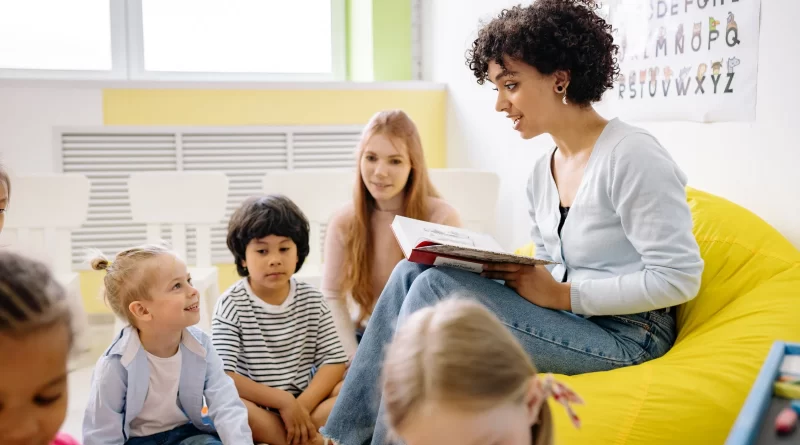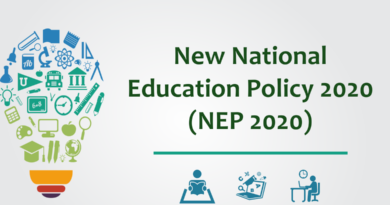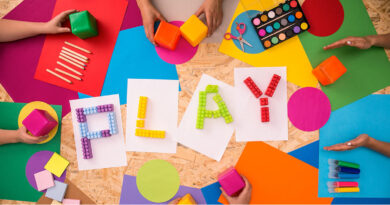Why Preschools are important?
The most common questions parents ask about preschool are “Why should I send my child to preschool?” and “Why can’t parents play the preschool teacher’s role at home?”
In preschool, a child gets exposed to letters, numbers, and shapes but they also gain social and emotional development as being around kids their age.
Preschool is necessary to prepare toddlers for their grade school education. Kids find it difficult to adjust in grade school without a preschool background as they struggle to have a grasp around various subjects like math, language, and science without previous exposure to these subjects.
Most recent studies on brain development have shown that children between the ages of 3 and 5 are the most important years of a child because 90% of the human brain is developed around the age of 5.
During this critical stage of their childhood here are some vital roles that preschool plays in your child’s life.
Preschool ensures school readiness
A child that directly enters primary school may find it overwhelming with an overly studious environment and strict rules that are maintained in typical Indian primary school classrooms.
Being introduced to education like this can have a negative impact on the child as they may struggle during their initial stages while trying to figure out this new environment.
Preschool education can bring a drastic positive change to a child’s introduction to education as it takes a different approach compared to normal kindergarten. In preschool learning is taught playfully and its child-focused curriculum ensures that children are prepared for their grade school education.
Preschool enhances the role of parents
Preschool isn’t about undermining the role of parents in a child’s life or lessening their abilities to teach their child. Preschool is about advancing a child’s capabilities as well as enhancing their physical, cognitive, social, and emotional development.
Learning at home is as important as learning at school. Without the involvement of parents in a child’s education would be half done as parents are considered the first teacher, a child is exposed to.
Parents help the teaching process by monitoring their school activities, inspiring them by being good role models, helping them out during their assignments, and providing them with constructive criticism
Participation of parents throughout the learning process can have a positive and lifelong impact on their child’s learning ability along with preschool education.
Develops social skills in younglings
Preschool plays a crucial role in the social skills of a child. In a preschool setting, they discover a lot of things by hanging out with other kids, playing games with them, and cooperating with them which develops new friendships that in turn develop their social skills.
As they meet with so many new faces which helps them to be more confident around a socially intense environment and mature their primary conversation skills when interacting with people.
Raises Emotional awareness
When children take part in different activities, there will be unavoidable minor conflicts between peers which can bring out different emotional challenges such as anger.
Preschool teachers are well trained to handle these minor disputes by converting this into an opportunity to teach children how to behave in such situations. They teach them to convey negative emotions through language rather than throwing tantrums or being physical.
In preschool children develop empathy to identify different kinds of emotions such as sadness, happiness, or anger. They also learn to respond to these types of emotions in an appropriate way raising their emotional awareness.
Improves Creativity
Kids attending preschools not just flourish their cognitive abilities but also play a major role in their creativity as well. Young children have wide imaginations and are curious. This curiosity and fascination with new things can boost their learning and creativity.
Teachers in preschool know the importance of creativity so they help by encouraging them to explore those curious minds and listen to those imaginative ideas rather than pushing them aside or correcting them.
In preschool children learns to tackle different problems put forth by their teachers which are mostly open-ended so children can find creative solutions to solve them.
Due to such creative stimulation with solving little tasks, children develop a creative mind so they can approach various problems with more than one solution in their life.
Learns to make decisions and be responsible
The most valuable lesson that children learn in preschool is decision-making and how to be responsible. Children are encouraged by the teachers to make different choices like what kind of activity they want to participate in? or which game they want to play? Etc.
Making their choices themselves helps their decision-making ability. Children are also encouraged to take care of themselves by teaching them to wash their own hands or keeping the toys back in their assigned place which helps them be more responsible for themselves and their behavior.
They are also thought different kinds of instructions and how to follow daily routines so that child develops a sense of time management and responsibility.
Makes a strong academic foundation
One of the myths related to preschool education is that it doesn’t have a lost lasting impact on a child’s life. Preschool has an overall positive impact on a child’s life by giving them complete growth opportunities in various areas.
The most impact that prekindergarten has on kids are the cognitive skills which they learn by trying unfamiliar things, problem-solving, and also language skills by learning new vocabulary while doing activities like singing.
Preschool composes a child for kindergarten and further advanced studies by making their fundamentals strong in math and learning new vocabularies.
Education provided by preschools is the best opportunity parents can have to prepare and develop those young curious minds for a better future.
Preschool lays out the groundwork which helps the child to do well from their kindergarten to the college years.





